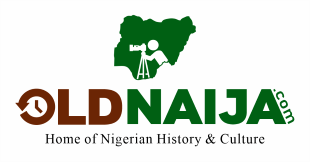History of Nigeria’s Economy: From Colonialism to the Present

The history of Nigeria’s economy is complex, largely because of the country’s colonial era and the gradual transition out of it. Looking back at this history, however, the beginning of that colonial era makes for a fitting place to start. To that point, it has been noted that the arrival of missionaries from Britain’s Church Missionary Society (CMS) in 1845 came with an intent of “economic and political dominance.”
The ostensible reasoning behind the missionaries’ arrival was, of course, to spread Christianity to new parts of the world. Soon after the CMS established a presence in what is now Nigeria, however, a colonial administration began to collect the country’s raw materials; a “deem fit” system was developed, whereby new policies concerning production were designed to benefit the British. In effect, this marked the establishment of a new, export-driven economy –– albeit an oppressive one that wasn’t built to benefit the Nigerian workforce.
In the years following the initial establishment of this system, the country was first run by the Royal Niger Company and then split into the Northern Nigeria Protectorate and Southern Nigeria Protectorate. Despite these jarring shifts in British control over the area, relatively little changed from an economic standpoint during this period. Nigerian production consisted primarily of agricultural and mining activity and was used to benefit the British. Indeed, a similar situation persisted even when Britain unified the country in 1914.
Around this time, Nigeria was exporting raw materials to Britain and Europe and importing usable goods. Slowly, a vague economic hierarchy emerged wherein there were hints of emerging economic elites and investment practices. Nevertheless, there was still very little in the way of true development, diversification, or industrialization concerning the economy.
In fact, Nigeria’s predominant focus on agriculture actually intensified in the decades to follow, with global conflicts limiting import options for European nations. World War II, in particular, cut off East and Southeast Asian suppliers of a range of raw materials, causing Britain and other European nations to depend even more on Nigerian production.
Following the era of the world wars, Nigeria saw gradually increasing calls for independence. With these calls came a growing sense that a more modern economy –– and one built to benefit Nigerians rather than Europeans –– could be built. And so, when Nigeria gained independence in 1960, some of the first major changes were made in the service of economic development.
Most notably, the new Nigerian government moved quickly to strengthen education, ultimately establishing a whole new collection of schools and universities from 1960 to 1970 and generating large increases in enrollment. This was done in part to reduce illiteracy and build up a skilled and capable workforce. Unsurprisingly, accelerated industrialisation followed; Nigeria was soon building and operating hydraulic dams, supporting large automotive production plants, and welcoming a variety of new industries.
Following this early shift in the priorities of a newly independent Nigeria, economic development in the 1970s and ‘80s was represented by four things. First, Nigeria continued to be a significant agricultural country, producing valuable raw goods through farming and mining alike and profiting from exports.
Second, Nigeria continued to embrace new industries, such as manufacturing and services, to complement agriculture. Around the same time, the country also experienced something of an oil boom, leading to fresh economic opportunities.
And fourth, the government began to take a more aggressive approach to spending –– though the up-and-down nature of this approach largely kept everyone guessing as to the state of the economy for multiple decades.
As this era of transition took Nigeria ever closer to the dawn of the 21st century, the country embarked on years’ worth of policy development with the goal of modernising and diversifying the economy. Three in particular took ambitious and comprehensive approaches toward fostering positive change:
Fourth National Development Plan –– Enacted in the ‘80s as the fourth in a series of similar initiatives, the Fourth National Development Plan was meant to raise income, reduce unemployment, increase skilled labour, foster equality, and embrace new technologies and industries.
Nigeria’s Vision 2010 –– The idea behind this plan was for economic growth to be restored after a slowdown in the ‘90s. Nigeria sought to become a more fully developed nation, with a 2010 deadline and a heavy reliance on private-sector economic growth. In totality, Vision 2010 was largely deemed a failure, though it is likely that it contributed to some industry growth.
Vision 2020 –– Following the failure of Vision 2010, Nigeria established a fresh version of the initiative aimed to establish the economy as one of the top 20 in the world by 2020. Once again, there was early consensus that this goal was unattainable, and in a sense, Vision 2020 failed. Nevertheless, it did spur further diversification and growth of the economy.
That more or less takes us to the present day, at which point Nigeria has a far more complex and multi-faceted economy than at most any other point in its history. That economy is still far from perfect, but there are three important areas in which progress is clear:
Citizens’ Self-Sufficiency
Looking back at Nigeria’s economic history, it was not long ago at all that the country’s own citizens were afterthoughts with regard to production, profit, and financial security. As the economy has grown and changed, however, there are multiple indications of a far more financially self-sufficient population.
First and foremost, there have been gains in GDP per capita and real wages for average Nigerians in the 21st century (despite some ups and downs in the past few years). Additionally, with more money in their pockets, individual Nigerians are taking steps to secure their financial futures.
Many are investing using digital platforms that have set up shop in the country and made it easier to trade indices online. In this way, Nigerians can participate in the country’s own stock market (the NGX), using fast execution and instant withdrawals to invest in and profit off of assets that they once could not have bought into. In addition to angling for financial growth, meanwhile, citizens are also known to be saving more capital for the future. In the fall of 2023, more than 61% of respondents in a survey signified an intent to generate monthly savings.
In short, Nigerians are seeing a greater share of finances this century, and many are putting it to work for investment and future planning.
Diversification
Nigeria’s process of diversifying its economy has been underway for decades at this point. Indeed, to some degree, this effort was at the core of the aforementioned National Development Plans, as well as Vision 2010 and Vision 2020.
There is no clear point at which this process will ever be deemed “complete” or “successful,” but it is clear that progress has been made. Recent data breaking down Nigeria’s GDP shows that while agriculture is still the largest economic sector in the country, others such as IT, manufacturing, trade, construction, mining, real estate, and finance have all become significant. This diverse range is perhaps the clearest indicator of the fact that Nigeria now has a modern economy.
Ongoing Reform
Perhaps most important of all for continued progress is that economic reform is still underway. Furthermore, rather than establishing vague long-term initiatives such as Vision 2020, the current administration is taking more practical steps to address negative issues and spark greater financial growth and equality. Last summer, the World Bank released estimates suggesting that some of these reforms could ultimately save Nigeria USD $5.1 billion in 2023 alone. This indicates a degree of economic responsibility that could, in turn, bring about greater wealth and stability for the country.
All things considered, the Nigerian economy has had a long and winding road since the era of colonialism. It remains imperfect today; various initiatives have fallen short, and much has been written over the years describing the country as one that has failed to live up to its potential as a dominant African economic power. At the same time, however, slow but steady improvements have occurred. The economy is more robust, and individual Nigerians are more self-sufficient than at many points in history.
Thanks for reading, and please explore more history when you have the chance!
Questions? Advert? Click here to mail us or click here to call us.











